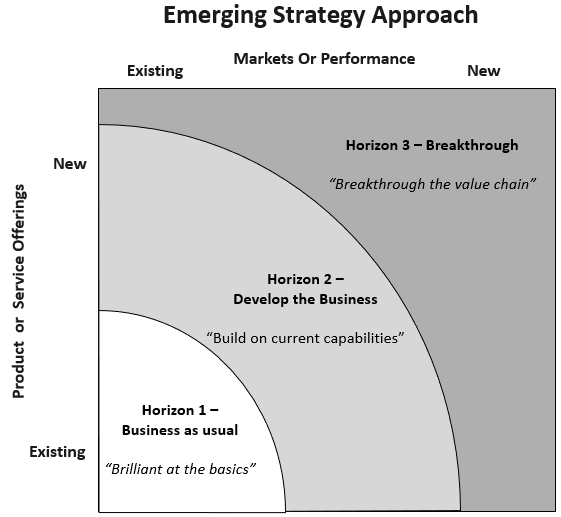Carbon Accounting Management Platform Benchmark…

In this article, we outline some considerations when developing and implementing strategic initiatives for the Agri-Food and Nutrition industries. Being “brilliant at the basics” is typically the first step an organisation must master before investing time and effort into more ambitious initiatives.
An emerging strategy provides the market intelligence and data that executives need to understand market opportunities, benchmark competitors, determine customer and channel needs, identify M&A targets, and avoid commercial surprises.
The Agri-Food and Nutrition Industry is undergoing a dynamic period of transformation in its continual development to meet the changing consumer needs and requirements of a constantly growing global population, and the demands of quality and quantity regarding food. Technological advancements are changing the landscape and there is an ever-growing influence of sustainable green bio-technology to consolidate the food industry of the future.
Considering the new conditions of the food and nutrition market, the industrial element must focus on the need to incorporate more flexible equipment based on data science and analytics, bioengineering, automation and robotics in order to efficiently execute the line production. This approach will promote the channels and technology expected by consumers, which will bring significant changes in the manufacture and supply of food required by the general population.
At Sia Partners, we work with our clients to develop and implement an emergent strategy approach as they manage this period of change. Typically, this involves identifying a menu of propositions for delivery, across three horizons;

Map your current initiatives and assess whether you have a balanced mix addressing all three horizons
Across each horizon, there will be a mix of enabling, capability building and new value-adding initiatives that will improve the organisation's performance. This approach allows propositions to be formed into projects, focussed on the right time horizon, and delivered across traditional silos.
Each of the Horizons work in parallel but time and investment are staged over a period of time, usually three to five years dependent on the maturity of the business.
It is our experience, working with large agri-businesses, around developing and implementing emerging strategies, that when tackling new market conditions, it is imperative that your strategy begins with being brilliant at the basics. This is the core of the business; what the business is known for delivering and what it must be excellent at delivering. Often, organisations can take this for granted, but time and time again, we have seen that this can be the biggest challenge for companies where everything concerning people, process and technology has become overly complex due to changing needs of customers, lack of effective technology or increased regulation. The standard of being good at the basics is constantly rising with the evolution of technology and regulatory change. Organisations must keep up with the pace of this change to stay competitive.
Often, the change required is about “making practical solutions normal practice” whether that relates to people, process or technology. Organisations can often find it difficult to identify this as they are caught up in the way things have always been done. Data Science and AI is enabling further advancements for organisations to make more informed decisions to improve performance.
Whilst the organisation is investing time at excelling in the basics, the research and development team can be developing opportunities and initiatives that will build on current capabilities. As the business matures in the basics, and improvements in performance are crystalising, this is the time to start putting more focus on developing business capabilities. This includes developing current products and services, cross-selling between business units or accessing adjacent segments. This can be building on the core or using the core to work with other adjacent organisations to deliver increased value and improve profitability. Ambitions include cost breakthroughs, making small acquisitions to build capability, deliver increased value, e-commerce solutions.
As the organisation stretches its capabilities and performance during the first two Horizons it can start to devote more time and investment to breaking through the value chain and ultimately aim to deliver greater margins for the business. This can include novel offerings which become more apparent as we go through the renewable transition, moving up the value chain ladder through more specialist product and service offerings, generating synergies across business units, redefining core competencies, facilitating major mergers or acquisitions, moving into new service lines or developing ecommerce business.
At Sia Partners, we have a team of experienced individuals working in the Agri Sector supporting organisations through transformative pieces of end to end work and delivering breakthrough results for our clients.
This work includes partnering with organisations to help them develop and implement their strategic goals across people, process and technology initiatives. We have had success working with many Agri-Businesses across the value chain in the following areas:
We understand the importance of choosing the right partner to work with; making sure that they are the right fit for your organisation, that they will challenge you, but will ultimately work with and support your people. Get in touch to find out more about how we can help.
Donal Dunlop
Senior Manager - Strategy and Advisory
donal.dunlop@sia-partners.com
+353 86 101 5312